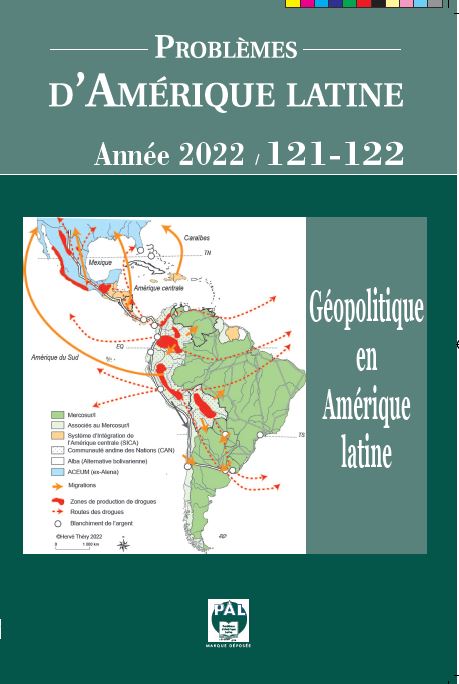Développement Régional au Brésil et en Argentine
DOI:
https://doi.org/10.54695/pal.121.0081Palabras clave:
Brésil, Argentine, Développement regional, Fédéralisme, Politiques publiques de développementResumen
Le thème du développement régional suscite l’intérêt du débat politique, notamment parce qu’il met en jeu les compétences de l’État, les relations
intergouvernementales et les inégalités dans la répartition des richesses et dans la formulation des politiques publiques. Au Brésil, l’une des principales
caractéristiques qui imprègne les politiques de développement régional est la grande inégalité entre le Nord, le Nord-Est et le Centre-Ouest par
rapport au Sud et au Sud-Est. Ce scénario d’inégalité n’est pas une prérogative brésilienne, ayant été observé dans d’autres pays d’Amérique latine,
notamment en Argentine. Cet article a donc, dans la comparaison entre les deux pays, le Brésil et l’Argentine, l’objectif de cartographier comment ils
ont construit leurs agendas gouvernementaux pour surmonter ces goulots d’étranglement du développement. Le Brésil a une trajectoire d’intervention
de l’État dans les politiques à travers les surintendances régionales et,d’autre part, l’Argentine a également des mesures, notamment situées dans
les portefeuilles ministériels, pour contenir les avancées des asymétries.





